 Raise a Glass to Freedom
Raise a Glass to Freedom
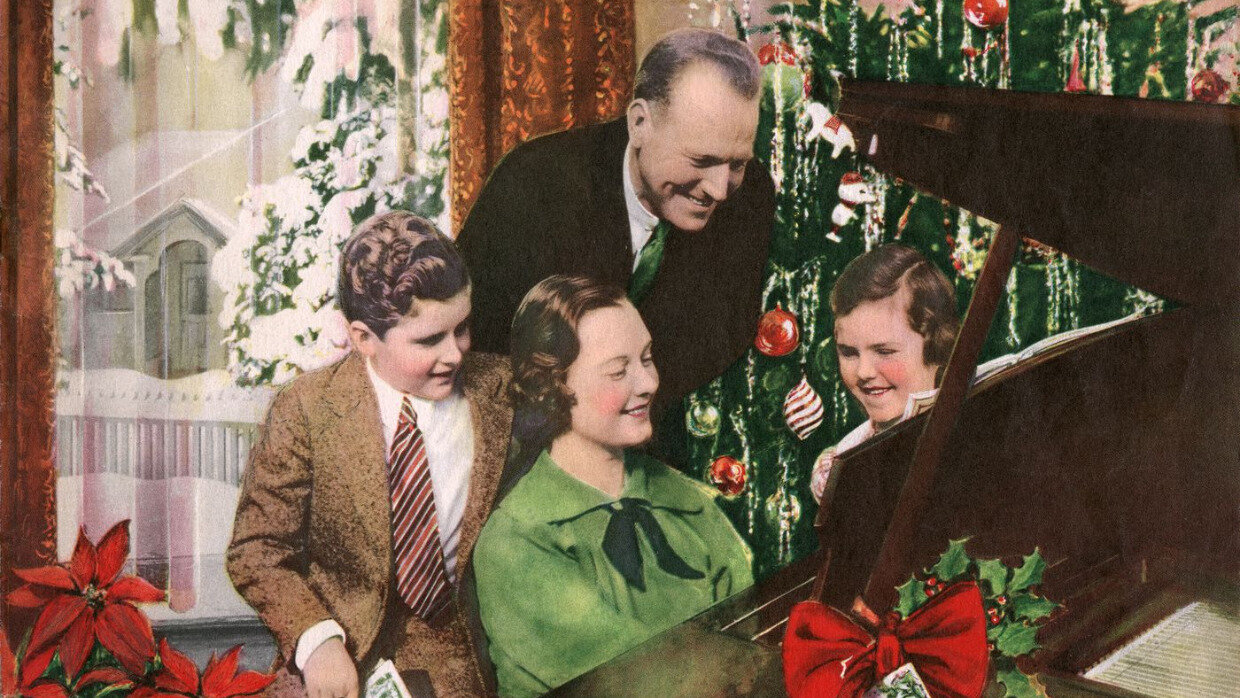

10 min read
From White Christmas to Rudolf the Red Nosed Reindeer, Jews created much of the soundtrack of the holiday.
Many of the most beloved Christmas songs were written by Jewish composers who shaped Americans’ conception of the holiday. From White Christmas to Rudolf the Red Nosed Reindeer to Santa Claus is Coming to Town, Jews created much of the soundtrack of the holiday.
Why are so many of the most beloved Christmas songs Jewish creations?
Dutch Jewish composer Stephen Emmer (who’s written his own Christmas song, Sleep for England) posits that: “It is in the DNA of Jews to write melancholy music, and also to ingratiate themselves in a world in which they are outsiders, at a time of the year when people are feeling especially patriotic and rooted in the idea of home.”
For many of the Jewish composers mentioned below, it seems that writing Christmas music was a way of fitting into a non-Jewish American idea. They didn’t write about Jesus or religious aspects of the holiday. Instead, their songs invoke an idealized American life that was denied to them and their families.
“The Christmas songs that are popular are not about Jesus, but they’re about sleigh bells and Santa and the trappings of Christmas,” explains Jewish American singer Michael Feinstein, who has recorded Christmas music himself. “They’re not religious songs.” Perhaps writing comforting, largely secular-sounding Christmas songs was a way for these composers to allow Jews to take part in the season.
Jewish American composer Rob Kapilow believes these composers reinvented Christmas as a largely secular holiday and a time to invoke an idealized America.
They created some beautiful music that brought joy to millions of people – but perhaps in doing so, they lost something precious of themselves, as well.
The story of the Jewish songwriters who shaped Christmas music “is…really a story about pogroms, prejudice, poverty, immigration, assimilation, and the powerful creative imaginations of an extraordinary group of songwriters who are trying to find their way into an American culture,” Kapilow notes, pointing out that older and European Christmas music used to be much more religious in nature. That changed in the 1940s, he believes, with the Jewish-written song White Christmas. “You know…lots of roads into American culture were blocked for these Jews, but they wanted to become part of that American world. And so what they did was they looked around, they listened around and they created the soundtrack of a secular Christmas.”
The composers listed below aren’t known for songs celebrating Hanukkah or other Jewish festivals. (Though Irving Berlin did write a song called Israel after the founding of the State of Israel.) They created some beautiful music that brought joy to millions of people – but perhaps in doing so, they lost something precious of themselves, as well.
Here are a few classic songs written or co-written by Jewish musicians.
Mel Torme was born in Chicago in 1925 after his parents immigrated from Russia. Mel remembered that after Shabbat dinner each week, he and his parents and siblings would sit on the front step of their building and serenade the neighbors with beautiful renditions of traditional Shabbat songs. Mel eventually left Jewish practice behind, became a composer, moved to California, and married four times. He teamed up with fellow Jewish musician Bob Levinson, who adopted the non-Jewish sounding name Wells. Bob penned lyrics to songs and Mel composed the music.
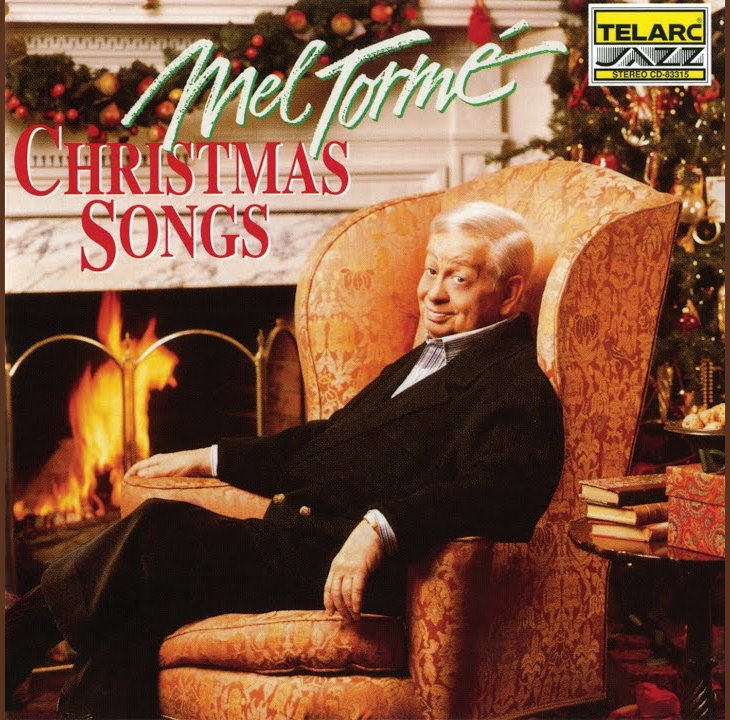
One summer day Mel walked into their Los Angeles studio to find a piece of paper propped on his piano reading: “Chestnuts roasting on an open fire / Jack Frost nipping at your nose / Yuletide carols being sung by a choir / And folds dressed up like Eskimos.” Bob walked in and explained that he was so hot, he’d tried to cool himself down by writing a song about winter. For his lyrics he drew on his childhood memories of wintertime in Boston.
Mel quickly came up with the now-famous song’s signature tune. Excited by how it sounded, Bob wrote more verses. The song was finished within 45 minutes. Nat King Cole recorded it the following year and a hit was born.
Mel Torme also wrote the song The Christmas Feeling in 1992.
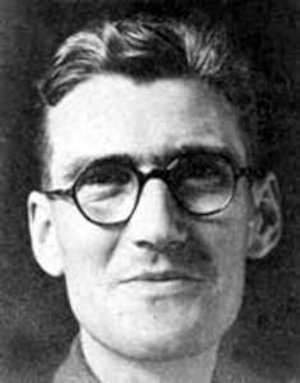 Felix Bernard
Felix Bernard
Richard B. Smith, the lyricist who wrote the beautiful words to this song, wasn’t Jewish, and they were among the last lyrics ever penned. He was hospitalized for tuberculosis in Pennsylvania in 1934 when he was 33 years old. Watching the snow fall outside his window, he wrote the words to Winter Wonderland and gave them to his business partner, the Jewish composer Felix Bernard (born Felix Bernhardt).
Knowing that his colleague was dying, Felix quickly wrote a beautiful melody for the work and ensured that it was released that year. Winter Wonderland was the biggest hit of 1934; Richard B. Smith died the following year.
This song was written during a major heat wave in 1945 in Los Angeles, when its composers found themselves longing for colder weather. Both of its composers were Jewish child protegees whose parents were refugees from Eastern Europe. They both changed their names, moved far away from their childhood homes, and gave up much of the Jewish ritual that marked their early lives.
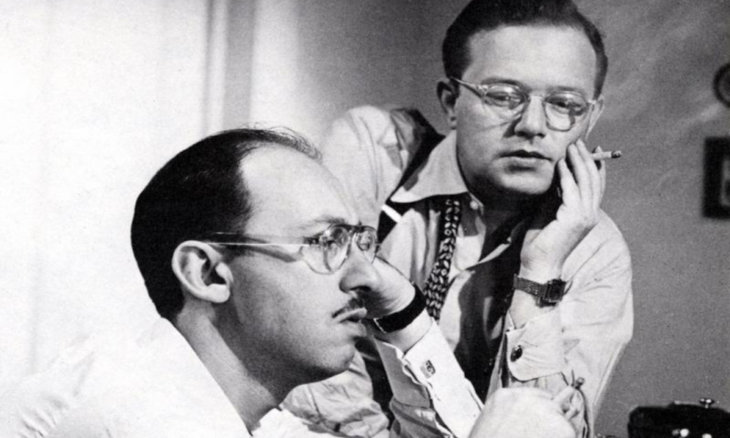 Sammy Cahn and Jule Styne
Sammy Cahn and Jule Styne
Sammy Cahn was born Samuel Cohen in New York in 1913. He learned the violin and played in bar mitzvah bands as a teen. Jule Styne (born Julius Stein) was born into London’s impoverished East End in 1905; his parents hailed from Ukraine and owned a small grocery store. He played the piano on stage in London as a young child. When he was eight years old, Jule’s family moved to Chicago when Jule was eight. There, Jule played the piano with the Chicago Symphony Orchestra. He later transitioned to songwriting and moved to Los Angeles.
Haven Gillespie (who was not Jewish) wrote the words to this 1934 hit and Jewish composer Fred Coots created the music. It took him only ten minutes to invent the core tune to this catchy melody.
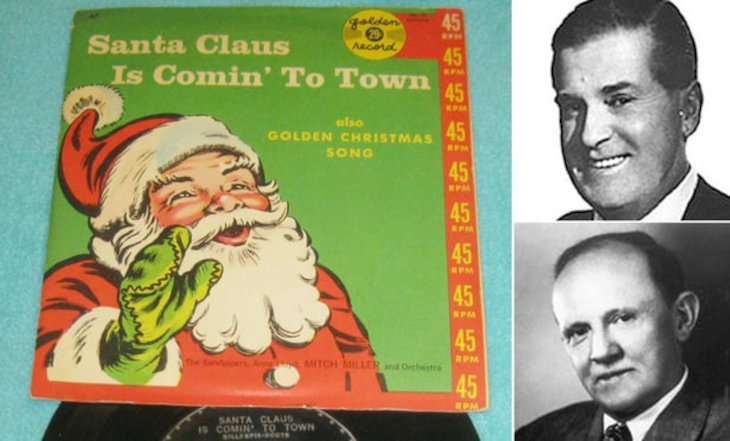
Coots was born in 1897 in Brooklyn to a musical Jewish family. His father sang at bar mitzvahs and his mother was a concert pianist. In his long career, Coots wrote songs for dozens of musicals, as well as scores of stand-alone songs.
Johnny Marks was born in 1909 in Mt. Vernon, New York, into a distinguished, secular Jewish family. Eschewing a synagogue membership, he joined the “Ethical Culture School” in Manhattan, a largely-Jewish center that aimed to provide a religious-like framework outside the bounds of Judaism or any other religion. Marks became a musician and songwriter and eventually specialized in creating Christmas songs. Among the scores of Christmas songs he penned, some of the most famous are Rudolph the Red Nosed Reindeer, Rockin’ Around the Christmas Tree, and A Holly Jolly Christmas.
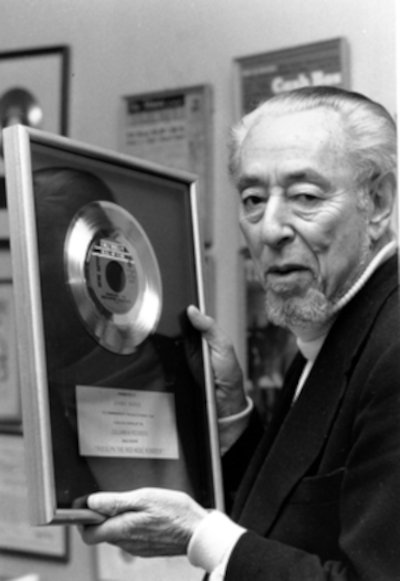 Johnny Marks
Johnny Marks
His most famous song, Rudolph the Red Nosed Reindeer, had a little-known family connection: it was based on a character created by Robert Lewis May, Johnny’s brother-in-law. In 1939, Robert was working for Montgomery Ward, the pioneering mail-order businessman and department store developer. It was a terrible time. Robert’s wife was very ill and he knew she didn’t have much more time left. Even though Robert was Jewish, Ward asked him to create a “cheery Christmas story” the store could give away with purchases during the Christmas shopping season.
Robert obliged and drew on his own experiences growing up as a “shy” and “small” Jewish boy who “had known what it was like to be an underdog.” He created a rhyming story about a little reindeer with a shiny nose named Rudolph. He is too small to help Santa deliver presents, but when the weather is foggy one Christmas Eve, Rudolph is the only reindeer who can help, illuminating Santa’s way with his glowing nose.
Years later, Johnny employed his brother-in law’s lyrics - written during the worst year of his life - in what is now a classic Christmas song.
White Christmas was written by Irving Berlin, a Jewish composer for whom Christmas was always associated with deep sadness.
Born Israel Beilin in Russia, Irving Berlin moved with his family to New York in 1902, when he was five years old. The family was utterly impoverished. Irving’s father worked as a chazzan, or cantor, as well as in a meat plant as a Hebrew teacher. He died when Irving was 13 years old, throwing the family into penury. Irving and his seven siblings went to work as children, leaving school to help support their family. Irving sold newspapers and the snatches of songs he heard from bars as he walked New York’s streets was his first introduction to American music.
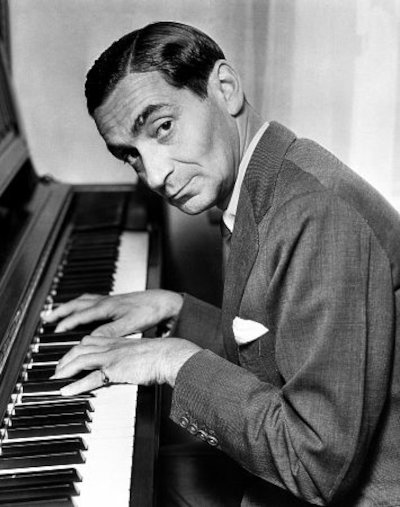 Irving Berlin
Irving Berlin
Irving’s first wife, Dorothy Goetz, contracted typhoid fever on their honeymoon and died soon after. He remarried and his son, Irving Berlin Jr., died when he was just three weeks old on Christmas Day 1928. From then on December 25 was always a day of sadness.
Despite these terrible personal feelings about December 25, Berlin wrote the nostalgic, beautiful song White Christmas in 1941, describing an idealized, all-American holiday, and it became a hit when Bing Crosby recorded it. It was included in the 1942 movie Holiday Inn, cementing White Christmas as an American favorite.
Swedish-American composer Leroy Anderson began composing Sleigh Ride during a 1946 heatwave. The tune conveys the clip-clop of a horse’s hooves and was initially performed without words. In 1950, Jewish songwriter Mitchell Parrish wrote words for the piece. It was eventually recorded by the Ronettes in 1963 and became a hit.
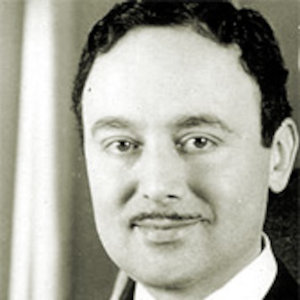 Mitchell Parrish
Mitchell Parrish
Born Michael Hyman Pashelinsky in 1901 in Lithuania, Mitchell Parrish’s family settled in New York where he learned to play the piano and got a job as a “songplugger,” traveling around New York music stores playing the latest popular songs in order to sell sheet music. He eventually wrote dozens of songs and worked on many musicals, though Sleigh Ride remained his most popular work.
This 1963 hit describing a quintessentially American Christmas was written by two Jews: George Wyle (born Bernard Weissman in 1916 in New York) composed the music and Edward Pola (born Sidney Edward Pollacsek in 1907, also in New York) wrote the lyrics. The song isn’t the most popular hit that George Wyle composed; he also wrote the theme song to Gilligan’s Island.</span

What is sad is that these composers wrote about everything except anything Jewish. The same was true of the movies the Jews made. They even averted their eyes from the Holocaust. Take a look at the beloved (though not by me) CASABLANCA and note that not a single person trying to escape the Nazis is Jewish.
Nice and well - and some of these songs ARE nice.
BUT they all ARE NOT CHRISTMAS RELATED BUT SEASON's SONGS!
In that way, they are, actually, ANTI-CHRISTIAN and more DISTRACTING!
There function is more in the direction of a CONSUMERIST FESTIVAL!
And in the "FATHER CHRISTMAS" either "COCA COLA" or "YULETIDE" pointed!
To be clear: HEATHEN ANTI-CHRISTMAS SONGS!
It's correct that many of the songs listed are winter songs, not Christmas ones. But they're NOT antiChristian. No one has to sing them, and one could hardly argue that they've driven out the religious Christian carols that are ubiquitous from Thanksgiving until December 25. jboo7 seems to be arguing that secular Christmas songs, and even winter songs, are hostile to Christian ideas. No Jingle Bells? Does that mean Americans can't have spring songs either, because that's when Christians observe Easter?
True.
What people didn’t understand and talk about was Jesus was Jewish and the Jews and the Romans did not kill Jesus. We know this today.
Very interesting! I was just humming a Xmas tune a couple of seconds before I saw this article, feeling a little bit guilty - what is a deeply committed Jewish woman doing humming a Xmech song? And then I discovered that at heart, and in soul, these are really Jewish tunes. Isn't that amazing? Thank you for this revelation! Now I can hum these tunes without feeling like an idol worshipper!😃
its still a problem to hum those tunes since they were made for xmas
It is sad... all these Jews trying to assimilate and forget about their Judaism were the ones who wrote all these songs.
hey might also have done it because it was very profitable...
that was the generation of trying to be as American as possible. Most Jews just "lost it" -things are much better now and many of the grandchildren of those lost Jews are today shomer Shabbas.
Roses are reddish and violets are bluish and if not for Christmas we'd all be Jewish
I think the premise put forth as to why Jews have been successful at creating their holiday songbook is incorrect.. jews raised in Jewish homes have experienced family value, respect for their parents, the importance of gathering for family meals.. They express these values and feelings to the nations in words and music and spread them as we spread light unto darkness.. and the emotion and desire for FAMILY VALUES... is embraced fully by the nations... The song writers are expressing JEWISH values that attract and are wished for by others.. it is communicating these feelings, values and emotions that the public at large embraces and desirable.. What is being sold is OUR sense of family, warmth, caring and love... and it is readily being purchased by the nations..
“Santa Claus is Coming to Town” is introducing idol worship, as far as I was taught. Where’s the Love light?
Thanks Yvette for your most interesting article. I would never have guessed that so many of those melodious, well known & popular songs were composed by Yids.
I'll probably get thrown into the doghouse for my comment, but I fail to understand why Jews are fascinated with goyish holidays and are willing to participate in the secular aspects of them. I honestly don't get it.
I was raised in a Secular Jewish household but my request for a tree was denied by my parents. They told me it was okay to look at other people's Xmas decorations but "we don't do that." I wish they had given me a solid Jewish education, but I am making up for lost time now. Btw--My public school NEVER acknowledged Chanukah.
Public schools shouldn't acknowledge any religious holidays either in secular or religious form. My husband went to public school in NJ which had a large Jewish student body and when December rolled around in addition to Christmas carols the choir would sing the inevitable dreidel song--that was the extent of recognizing Chanukah. So maybe it's just as well that your school never acknowledged Chanukah. Year in and year out, I would have been driven insane to have the same song over and over. I'm surprised no one complained.
OR.......the US could do secular democracy the way India does it, and acknowledge *everyone's* religious holidays. This way children learn about each other's traditions, and they learn to incorporate mutual awareness into their every day lives.
It's called assimilation. According to Rav Avigdor Miller tzl Jews running from Nazi Germany on the way stopped at their radios to shed a tear on xmas eve cause they missed their xmas Carols. Contrary to popular belief pre-war Europe was made of of mostly reform and assimilated Jews. Religious Jews were a small minority with no power over the communities of Bundists, Socialists etc.
When the Torah writes about Acher, the only Tana to defect, Rav Miller compares him falling for Greek culture the way new immigrants fell for American culture. He speaks about the natural tendency for a person to look up to a dominate successful culture like America or back in the day the Greeks. Jews in Europe had no street lamps or paved roads, they looked up to America culture and success.
You call those songs about reindeer and snow, "Christmas" songs. No, they are WINTER songs. Xmas songs are religious about the Christian G-D & Savior. Are there any RELIGIOUS songs by Jews? That would be noteworthy, but not songs about different aspects of winter. Blessings.
Excellent enjoyable and enlightening Thanks so much for it!!
Tzvi Karp History Lecturer
Thanks for a very informative article about a matter that has puzzled me for decades. I'm an 80-year old American atheist who had know a few parts of the story (like White Christmas), but had never fully appreciated the fact that so much the secular music associated with Christmas in today's America was written by Jews. Your story certainly explains a lot.
But please, give us better editing--errors like "When he was eight years old, Jule’s family moved to Chicago when Jule was eight." spoils the story line.
Anyway, thank you for publishing this story.
Great story. Merry Christmas to all! God bless us, every one.
Even though he didn’t write the songs, I think Phil Spector’s Christmas album deserves honorable mention. It has many of the songs mentioned and is probably one of the best pop albums of all time (Christmas or any other).